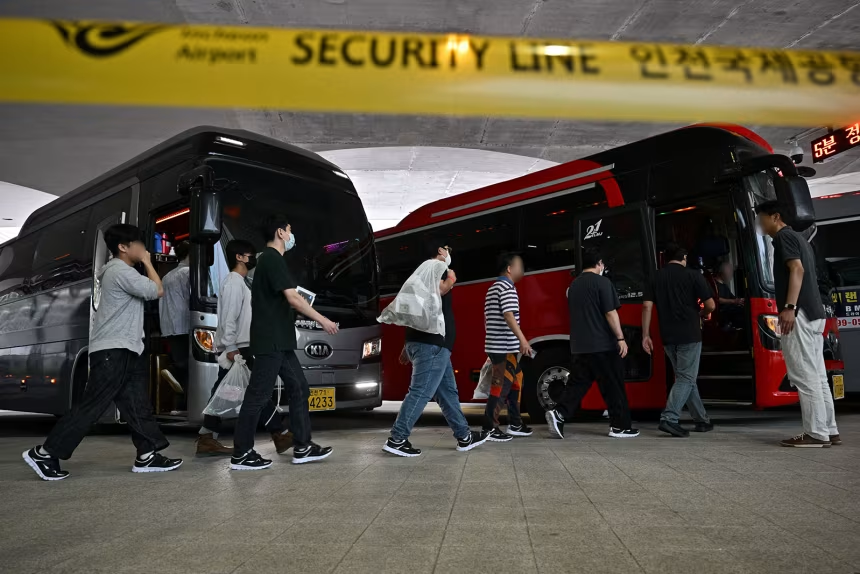Hundreds of South Korean workers have arrived back in Seoul after being caught up in one of the largest US immigration raids in recent history. The group, mostly technicians and specialists from South Korea, had been working at the Hyundai LG electric vehicle battery plant under construction in Georgia when the operation took place earlier this month.
The raid on September 4 led to the detention of around 475 foreign workers, the majority of them South Koreans. Authorities cited visa issues, including expired documents and misuse of the visa waiver program, as the main reasons for the arrests. Images of workers in shackles circulated widely and fueled anger in South Korea, sparking a swift diplomatic response from Seoul.
After several days of negotiations, the South Korean government arranged for a chartered flight to bring its citizens home. More than 300 workers boarded a Korean Air jet in Atlanta and landed in Incheon on Friday to a mix of relief, applause, and emotional reunions with family members. The return also included workers from China, Japan, and Indonesia, though the vast majority were South Korean nationals.
The incident has raised serious questions about labor mobility, visa policies, and the dependence of large scale US industrial projects on foreign expertise. Hyundai has already warned that the raid will delay the startup of its Georgia battery plant by two to three months, underscoring the crucial role of foreign workers in delivering new energy infrastructure.
Diplomatic talks between Washington and Seoul are now focusing on solutions to prevent similar crises in the future. Proposals under discussion include the creation of a new visa category tailored for skilled technical labor in strategic industries. For many observers, the episode highlights both the challenges and the opportunities in balancing immigration enforcement with the realities of global manufacturing partnerships.


